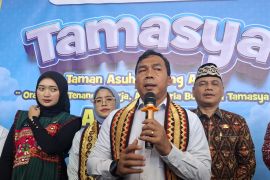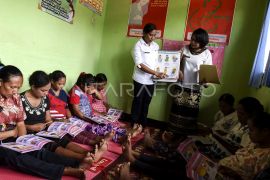"The Population Award from the United Nations is the result of hard work and support (resulting) from the cooperation between government agencies," head of the BKKBN, Hasto Wardoyo, said in a written statement received by ANTARA here on Monday.
According to him, the award received by the agency at the UN Headquarters in New York on Monday has shown that the development and implementation of family planning and population programs in Indonesia have attained international recognition and support.
The UNPA, which has now been won twice by Indonesia, is also a form of global acknowledgment of the BKKBN for every program that has helped build awareness of and design solutions to population problems.
The BKKBN’s family planning program has succeeded in reducing the total fertility rate (TFR) significantly from 5.6 to 2.2 births per woman in the period from 1970 to 2000.
Any decline in the fertility rate slows down the rate of population growth. Thus, it can positively influence the quality of public services in the aspects of education, health, as well as infrastructure, and raise people's living standards.
“The real impact of this program is the demographic dividend that Indonesia is currently experiencing. The demographic dividend has an impact on increasing welfare, where the number of the productive population is more than the unproductive population," Wardoyo explained.
The United Nations Population Award has been presented by the United Nations annually to individuals and/or institutions since 1983 and was first established by the United Nations General Assembly via resolution 36/201 in 1981.
Indonesia received the award under late President Suharto's administration in 1989, or 33 years ago.
Related news: BKKBN underlines three points to reap demographic bonus
Related news: Number of offspring affects family quality: BKKBN
Related news: Greater empathy in informing about family planning: BKKBN
Translator: Hreeloita Dharma, Raka Adji
Editor: Sri Haryati
Copyright © ANTARA 2022












